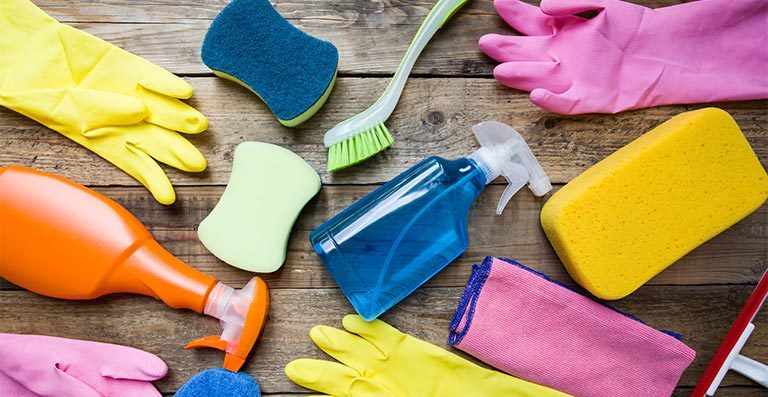Plastics – Can We Live Without Them?
As one of the world’s fastest developing countries, India is growing tremendously in various fields like technology, science, medicine, and more. However, many of these industries are unlikely to grow at the same rate or even make the same amount of progress if it wasn’t for one material – Plastic.
Over the past few decades, the use of plastic has become increasingly widespread from industries to our homes. The reason behind the popularity is that it is a strong, lightweight, and flexible material that is inexpensive, easy to use, and offers convenience. As a result, large scale production of plastics began and today, plastic pollution is one of the biggest challenges faced by humanity.
Ubiquity of Plastics
Despite the unfavorable public opinion, plastics are critical to life in today’s world. Plastics played a key role in the development of computers, cell phones, advancements in modern medicines, and more. There is an increasing amount of plastics used in vehicles (seats, interior panels, polycarbonate windows, etc.) today to make them lighter and more fuel-efficient. Since plastics are lightweight and offer good insulation, even greenhouse gas emissions from transportation are greatly reduced.
Moreover, inexpensive plastics are responsible for the easy availability of many consumer goods. Plastic allows products to become more durable and lightweight. Alternatives to plastic, like metals or glass would lead to heavier and more expensive end products. Had alternatives for plastics been used, many of the things we take for granted today would have not been as affordable.
Another industry that can’t do without plastic is plumbing. Plastic pipes, unlike the ones made from iron, don’t rust when they come in contact with water. Plastics have also been a boon in the packaging industry. Most consumer products come in plastic packaging today – plastic tubs for yoghurt, plastic wrap for cheese, or blow-molded plastic containers for water and milk.
In the medical industry, plastic is attributed to an increase in efficiency and hygiene. Disposable plastic syringes and tubing are vital to reduce the transmission of communicable diseases. Intravenous blood, fluid, and medicine bags make it easier to attend to dosage and replacement needs for healthcare workers. Plastic heart valves, knee and hip joints, other prosthetics made from plastic help in improving the patients’ quality of life.
Life Without Plastics – Is That Even Possible?
After looking at some of the many applications, it seems impossible to even imagine a world without plastics. While plastic may be essential in the world, it poses a significant risk to not just human health but also the environment.
The primary problem with traditional plastics is that they take too long to decompose on their own. That’s why a growing number of scientists are attempting to create plastics that are safer and more sustainable. One such creation is called bioplastics, which are essentially plastics made from plant matter instead of fossil fuels. As for the plastics that are being used currently, innovators are working on ways to make recycling more efficient. Efforts such as waste segregation are also being employed to deal with plastic waste.
If you are interested in knowing more about environmentally-friendly plastics, make sure to visit Plastivision 2020.
Leave a Reply Cancel reply
Recent Posts
- Understanding The Materials That Are Used To Build Plastic Toys
- All You Need To Know About Food-grade Plastics
- A Glance At The Materials That Boost The Performance Of Plastics
- Understanding The Importance Of Exploring New Business Opportunities In The Plastic Industry
- Understanding The Importance Of Investing in R&D For The Plastic Industry
Categories
- 3D Printing
- AIPMA
- Automation
- Automobile Sector
- Bio Plastics
- Environment
- Innovations In Recycling
- Latest Innovations
- Molds & Dies
- News
- Packaging Industry
- Plastic
- Plastic Application
- Plastic Industry
- Plastic Market
- Plastic Myths
- Plastic News From The World
- Plastic Packaging
- Plastic Products
- Plastic Recycling
- Plastic Solar Cells
- Plastic Toys
- Plastic Waste
- Plastic World
- Plastics
- Plastics And Their Applications
- Plastics In Agriculture
- Plastics In Healthcare
- Plastics In Medical Industry
- Plasticulture
- Processing Machinery
- Recycling Machines
- Robotics
- Uncategorized
- Virtual Reality
Archives
- November 2023 (3)
- October 2023 (2)
- September 2023 (3)
- August 2023 (3)
- July 2023 (3)
- June 2023 (3)
- May 2023 (2)
- April 2023 (2)
- March 2023 (2)
- February 2023 (2)
- January 2023 (2)
- December 2022 (3)
- November 2022 (1)
- October 2022 (1)
- September 2022 (2)
- August 2022 (1)
- July 2022 (3)
- May 2022 (3)
- March 2022 (2)
- February 2022 (1)
- January 2022 (1)
- September 2021 (2)
- August 2021 (3)
- July 2021 (4)
- June 2021 (4)
- May 2021 (3)
- April 2021 (2)
- March 2021 (4)
- November 2019 (8)
- October 2019 (8)
- September 2019 (8)
- August 2019 (8)
- July 2019 (8)
- June 2019 (8)
- May 2019 (8)
- April 2019 (8)
- March 2019 (8)
- February 2019 (11)
- January 2019 (8)
- December 2018 (8)
- November 2018 (12)
- October 2018 (12)

